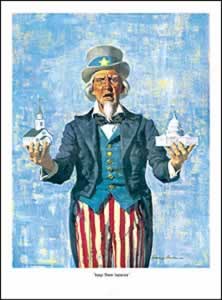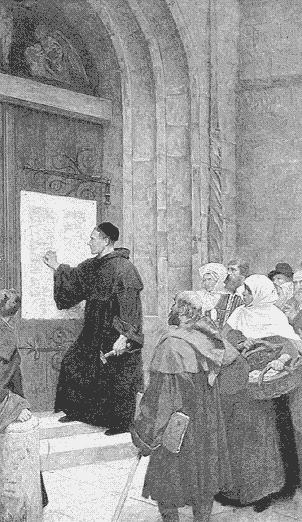
As published in the Tallahassee Democrat
April 22, 2010
As someone who was reared, educated, practiced law and lived the first 35 years of my life in Florida before following my calling to be an ordained Baptist minister and constitutional lawyer, I have a special interest in religious liberty developments in my home state. I am deeply concerned at the prospect of the state government gaining the power to deny religious liberty to all its citizens by using tax dollars to subsidize religion.
That is precisely what will occur if some legislators succeed in their attempt to take an ax to the religious freedom guarantee of the Florida Constitution's Declaration of Rights. This guarantee, commonly called the "No Aid Provision," forbids government funding of religious entities. House Joint Resolution 1399 and Senate Joint Resolution 2550 would put an amendment on the November ballot that would change the century-old principle and permit government funding of religion.
Much has been made of the fact that this would allow for the creation of a school voucher program, but the amendment's broad language would open the door for direct government funding of religion in virtually any area.
The current language in the Florida Constitution reflects a recognition by its drafters, like America's Founding Fathers before them, that church-state separation is the best means of protecting religious liberty. Authentic religion should depend on the persuasive power of the truth it proclaims and not on the coercive power of the state. Using the things of Caesar to finance the things of God is averse to true religion and violates the spirit of freedom on which it is based.
Beyond the unfairness of taxing Floridians to support a religion in which they may or may not believe — a proposition that Thomas Jefferson denounced as "sinful and tyrannical" — religious liberty is even further harmed by government funding because the government always controls what it funds.
Moreover, the prophetic voice of religion will, even if only subconsciously, be dampened by state sponsorship. Indeed, religion historically has stood outside of government's control, serving as a critic of government. How can religion continue to raise a prophetic fist against government when it has the other hand open to receive a government handout? It cannot.
Both the state and religious institutions are better off when neither tries to dominate or do the work of the other. The Legislature faces a clear choice: Adopt the proposed amendment and gut the constitution's protection of the vitality and independence of religious entities, or leave intact a constitutional provision that has protected religion from the shifting winds of politics and allowed generations of Floridians to worship — or not — according to the dictates of their own consciences.
I hope the state Legislature will make the right choice and preserve Florida's wise and time-honored protection of religion, guaranteeing that Floridians present and future will continue to enjoy the same religious liberty that has been indispensable and meaningful to me and so many others.
J. Brent Walker is executive director of the Baptist Joint Committee for Religious Liberty in Washington, D.C. He is a graduate of Stetson University College of Law and the University of Florida and was a partner in the Tampa office of Carlton Fields. Source
















0 comments:
Post a Comment